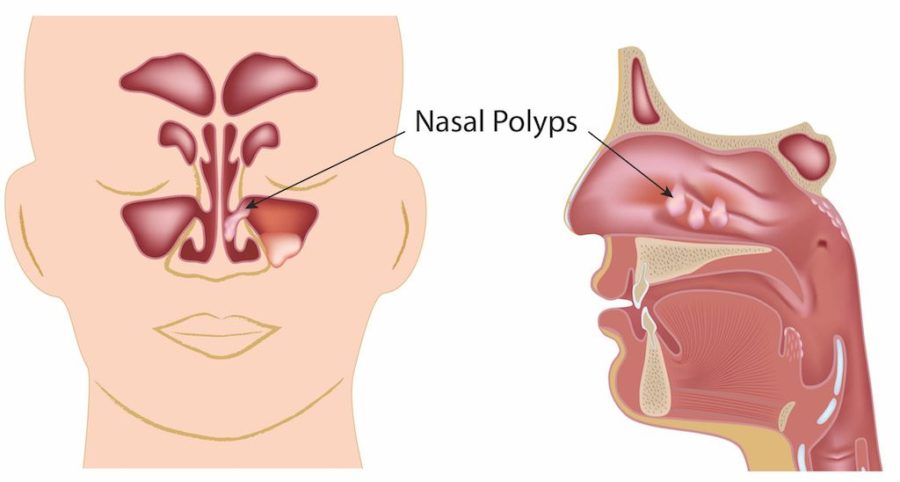Nasal Polyps
What are nasal polyps?
Nasal polyps are small non-cancerous growths of inflamed tissue that develop on the lining of the nose or sinuses. Small nasal polyps may not cause sense of smell and taste. Nasal polyps themselves aren’t a disease, but are the result of a viral or bacterial infection, allergies or an immune response.
What are the symptoms of nasal polyps?
- Mouth breathing
- Chronic sinus infections
- Runny nose
- Persistent nasal stuffiness
- Diminished sense of smell and taste
- Headaches
- Snoring
- Sinus pressure

How are nasal polyps diagnosed?
Having a condition that causes chronic inflammation is the biggest risk factor for nasal polyps. They are also more common in adults over 40 years old or in patients that have cystic fibrosis, asthma, hay fever or chronic sinusitis.
After a physical examination and review of medical history, your physician may utilize any of the following to aid in the diagnosis:
- CT scan
- Nasal endoscopy (a flexible tube is inserted into the nose with a fiber optic light that allows your physician to examine the nasal passages)
- Allergy skin testing
How are nasal polyps treated?
For small polyps, Dr. Lieberman might prescribe medication to relieve inflammation and reduce the size of the polyps. For larger polyps or when medications aren’t effective, functional endoscopic sinus surgery might be required to remove the polyps and any accompanying infection.
Functional endoscopic sinus surgery typically preserves more of the surrounding tissue than traditional “open” surgeries. Dr. Lieberman will insert a thin, lighted tube (endoscope) into the nasal cavity or sinus rather than opening the area with an incision. Micro instruments are used with the endoscope to remove diseased tissue and the polyps.


